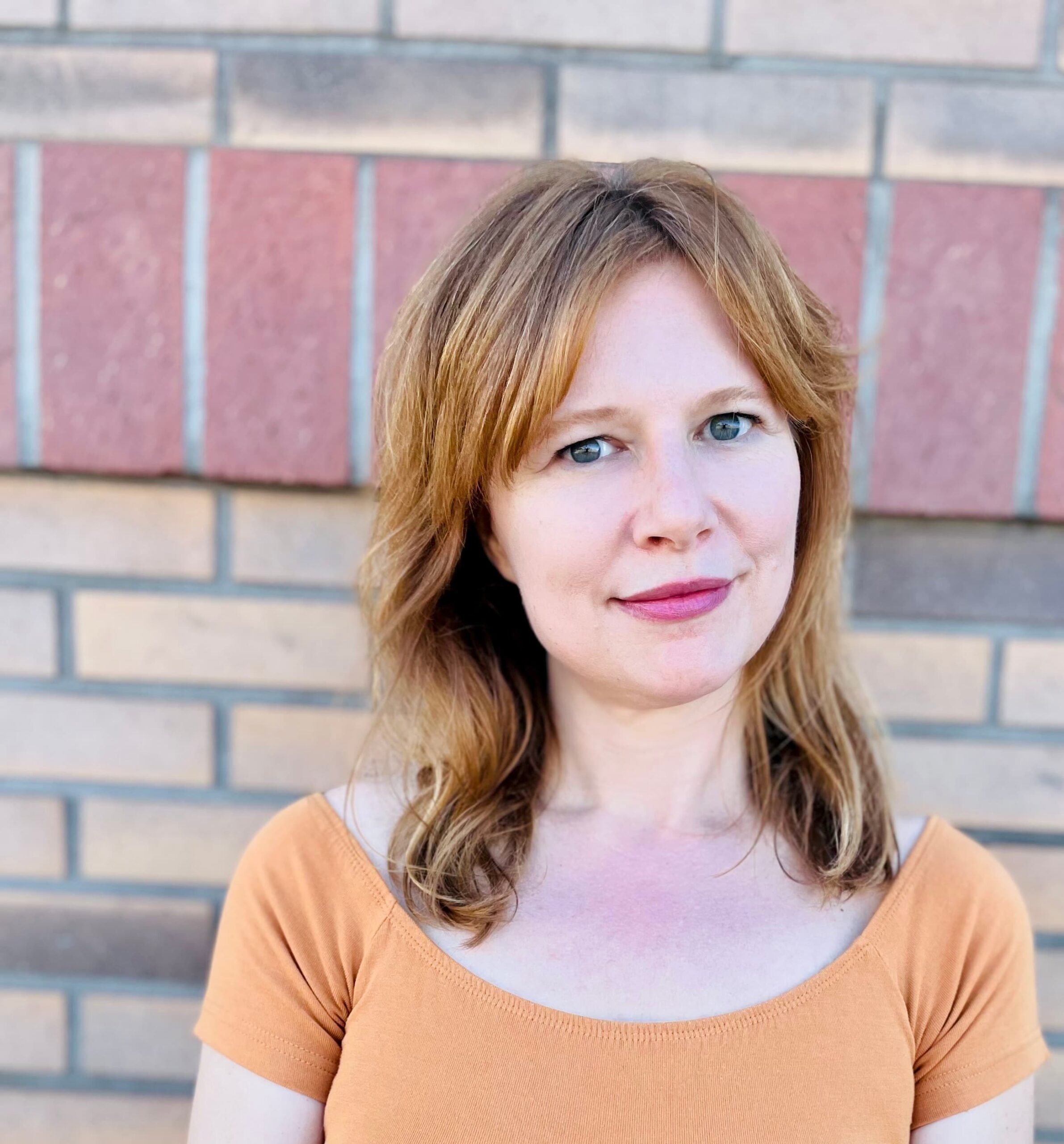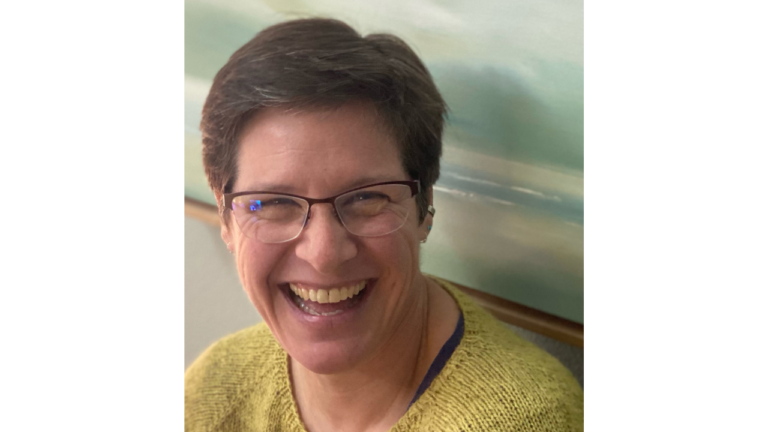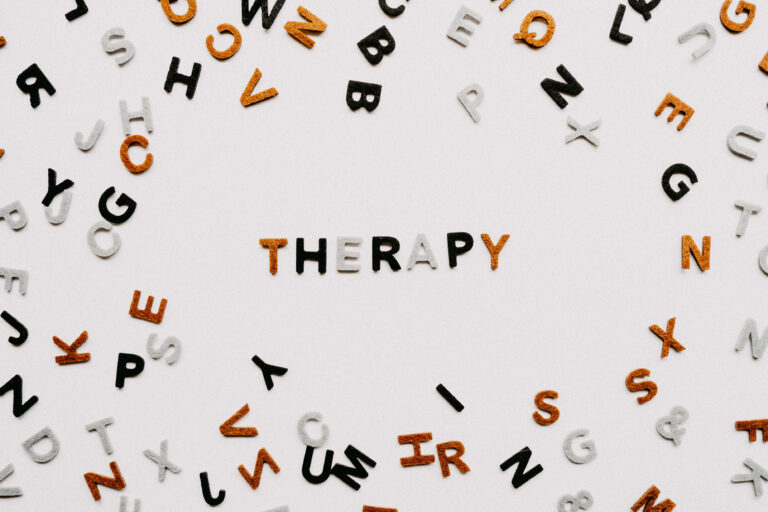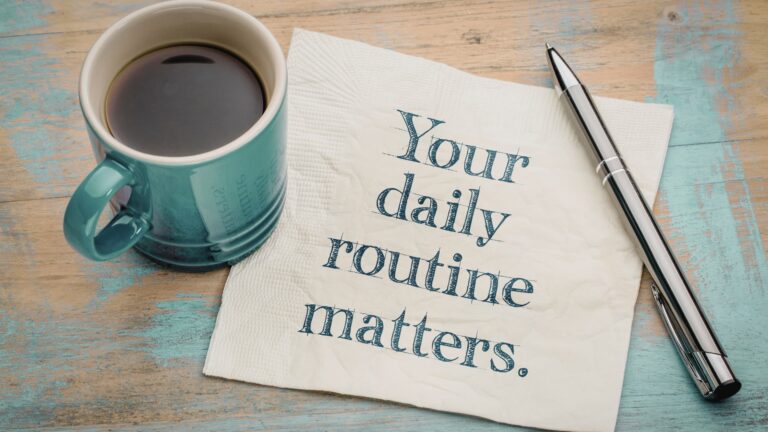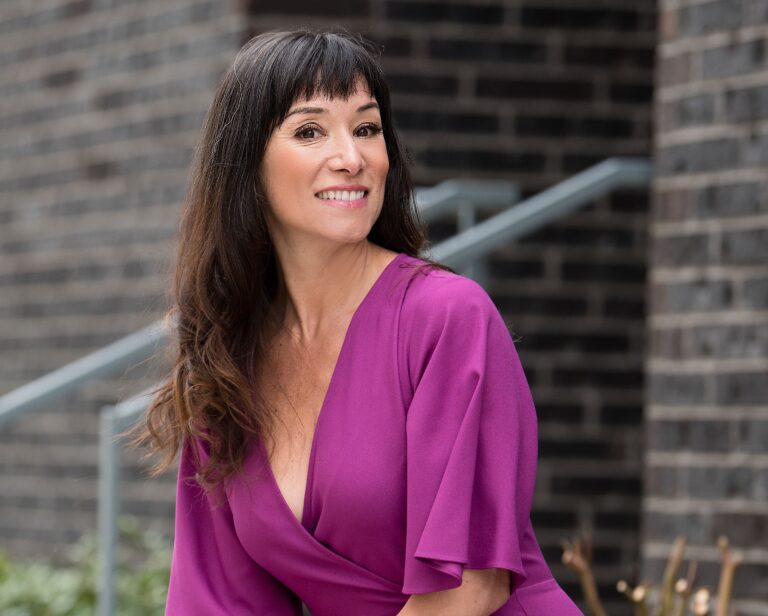Grief and Self-Compassion: A Widow’s Journey of Rediscovery
When you’re a widow, it’s not often you think of grief and self-compassion in the same sentence.
But that’s exactly what guest Elizabeth Rose talked about on this episode of the Widow Squad podcast. Elizabeth, a performer and widow based in Charlottesville, Virginia opens up about her path to finding herself again following the devastating losses of her dad and husband.
Elizabeth’s candid conversation about her widow journey sheds light on the often overlooked aspect of self-compassion in the midst of grief, offering a fresh perspective that mixes the pain of loss with the healing power of being kind to yourself. What’s truly inspiring is how Elizabeth found her way back to joy and creativity in the midst of grief. It’s a reminder that even when things difficult and we’re not sure which way to turn, there’s hope and a community ready to support us.
Key topics in this episode:
- The profound impact of finding supportive communities
- Navigating the individual and prolonged nature of grief
- Reconnecting with personal passions and finding a new sense of purpose
We’re all about sharing how to walk through the ups and downs of widowhood and come out on the other side.
Listen to the Full Episode
Links + Resources From This Episode
- You can find Elizabeth on Instagram here
- It’s Okay that You’re Not Okay by Megan Devine
- Man’s Search for Meaning by Viktor Frankl
“I think one of the best things we can do for ourselves is go easy on ourselves and give ourselves grace.”
Episode Transcript
Melissa: Hi, and welcome to the Widow Squad Podcast. This week we’re talking to Elizabeth Rose. Let me tell you a little bit about her before we get started.
As a performing member of two New York City theater companies, she acquired an eclectic list of day jobs that includes copywriter, television production assistant, and visual merchandiser. Elizabeth’s life is deeply impacted by loss. In her early thirties, she lost her father suddenly and tragically. Then two years later, she lost her husband also suddenly. Her journey has not been easy or straightforward, but she’s found hope by continuing to cultivate her creative side and finding community in even the smallest of ways.
Elizabeth currently lives in Charlottesville, Virginia, and performs in theaters throughout the area.
I’m really glad you’re here with us and sharing your story about your journey through grief and loss.
Would you mind telling us about your widow journey?
Love, Loss, and Finding Strength in Vulnerability
Elizabeth: Thank you for having me. I met my husband, Joel, in New York City. We actually met at a bar. My mother loves that story. We just kind of met randomly. It was one of those random city encounters, and he struck up a conversation with me. And from the first time we spoke, I just got a good feeling about him. His genuineness just came through so strongly, and I just felt very connected and at ease while I was talking with him.
We got married and built a life together in New York. I was acting at the time and my husband was a musician and he also worked in commercial real estate. We had a very full, happy life together, between our friends and our creative outlets and our day jobs.
My journey through loss journey began when I lost my dad suddenly. Joel was such an incredible support to me in those months following that tragedy, and such a support to my family.
I think after you go through something like that, you realize how strong your marriage is and the kind of person you married. So, we were working through that and also making plans for our future. And then I lost him. It was two years after losing my dad, and Joel’s loss was also very sudden. It was an undiagnosed medical condition. Two sudden losses just like that. It was incredibly painful, incredibly shocking, and incredibly destabilizing. Just very difficult to navigate, the grief from both losses.
You know they say to grieve each loss, individually. And I think there’s certainly some wisdom and truth in that. However, I also think that when a person experiences a loss like that so close together, I think it’s impossible not to consider the impact that one loss has on the other.
Melissa: You used the word destabilizing. And in my mind, it’s like your world is completely rocked. Like, what planet am I on? Are my feet even on the ground?
How long ago did Joel die?
Elizabeth: It’s been five years.
Melissa: And you’re both creatives, him being a musician and you acting. What kind of impact do you think that had on you? Were you able to tap into those resources within yourself in moving forward at all?
Elizabeth: I wasn’t able to right away. I think the thing for me when I lost Joel was that I was already very vulnerable and very raw from the sudden loss of my dad. After losing my dad, I stepped away from many of my creative endeavors, and that was obviously supposed to be a temporary thing. But it really took some time to reengage with that part of myself. I think my creative side was just offline for a very long time.
So, it took a while. But I think, once I could sort of take baby steps towards reconnecting with that part of myself, that was the beginning of my healing journey.
I don’t even know if that’s the right word. I don’t know if we ever fully heal from these things, but journey towards, I guess, some stabilization and feeling hopeful again.
Melissa: In those early days, there’s obviously shock because you said it was sudden. It was an undiagnosed medical condition. If you can take us back to the early part, beyond the shock, how are you moving through this?
Elizabeth: That’s a great question. I feel like very early on, a lot of it was a blur. As you also know from sudden loss, there are a lot of logistics to deal with, and you’re just wholly unequipped to deal with those sorts of things because you’re in shock and traumatized. So, I feel like a lot of the early months were a blur. I stayed with various family members and stayed with some friends. I actually ended up moving. I left New York.
I moved to Washington, D.C. briefly and moved in with some friends there. Having that support was obviously very beneficial and necessary. But it really took some time for my mind to even just come to terms with what had happened. You’re still waking up in the morning and you’re still forming sentences and you’re still going out into the world and doing these sorts of routine things. But I think for me, it took a very long time for the reality of what had happened to sink in.
Melissa: You and Joel were both young. Had you made any plans or talked about anything around what happens in this circumstance?
Elizabeth: We didn’t have any of those conversations. When you’re young, you don’t think about these things. Or maybe you do, but you assume you have a lot of time to get to them.
That was another real source of pain and struggle for me. Having to make all these decisions and hoping that I was making the right decision, but not really knowing what his wishes would have been had we been able to have some of those discussions. That was very painful for me to be to be put in that position. It just added another layer.
Melissa: Because you are in shock and you’re having all these emotions, yet you have to use the executive function part of your brain to make financial business decisions. I totally understand. Like, did I make the right decision?
I made mistakes. I made costly mistakes and had to forgive myself later for those, but, you know, you’re thrust into a really rough position.
Were you seeking any help from anybody, or did you have friends and family around you that helped you at all?
Elizabeth: Yes. I had friends and family around me. So, yes, I had support. However, when you’re the spouse, it really falls to you to make these decisions and sign the paperwork. I think we can certainly have our support people with us while making those decisions. But I think ultimately, it falls to the spouse. That can be stressful because you have to deal with those decisions when you’re not in a frame of mind to really be thinking clearly.
But you said something about being easy on ourselves when we’re in that situation. I feel like self-compassion has been a very useful tool for me. I really realized some ways that I was being extremely hard on myself. And I think learning to recognize those times when I was falling into those thought patterns was very helpful for me, for sure.
Melissa: Was that something that you had tapped into prior to your dad’s death and Joel’s death? Were you aware of the importance of self-compassion?
Elizabeth: No. I think I’ve always been hard on myself. But it wasn’t until I was put in these incredibly traumatic and stressful situations that I realized some of the negative self-talk that I had. When you’re going through the unimaginable pain of losing your spouse and the shock of sudden loss, I think one of the best things we can do for ourselves is go easy on ourselves and give ourselves grace. Sometimes you want to do that, but you’re not even conscious of the subtle ways you’re not offering that to yourself.
Melissa: The fact that you recognize that and can spin it differently and be more compassionate and forgiving and graceful to yourself is pretty amazing. That’s how you make those big decisions. Because you’re tapping into your gut, and you’re being kind to yourself, and you’re listening to yourself. You’re getting to know yourself better, and then you can make those big decisions.
Speaking of big decisions, you said you moved. How long was that after Joel died?
Elizabeth: It was about four months after the loss that I moved to Washington, D.C., so it was pretty quick. My husband and I had actually talked about relocating. So, the decision to leave New York wasn’t as fraught as it might have been otherwise. However, I obviously did not anticipate moving under those circumstances. I know there’s a saying of don’t make any big decisions within the first year and I think that’s certainly ideal if you don’t have to. But I think for many people, they end up having to make very big decisions in that first year.
I moved to Washington, D.C. and moved in with friends. It was wonderful to have that support. But the friends I was living with actually ended up moving to Atlanta. One of them got a job transfer. Then the pandemic hit about a year after I lost Joel. So, I felt like that kind of put another wrench into my journey to get my life back on track. It became very difficult to get settled in a city.
I mean, many people, whether or not they were grieving, were just cut off from support and community, and that was very difficult for sure.
Melissa: Oh my gosh. I think about that because I had two little boys 13 years ago. If it had happened during the pandemic or if I was cut off from support, I was already in a bad state. I just felt so horrible for the folks who were widowed and in isolation because of the pandemic. That’s awful.
So is that when you moved to Virginia?
Elizabeth: Yeah. It was probably about a year after the pandemic when I moved to Charlottesville, Virginia. It’s closer to family and just seemed to just seemed to make sense at the time.
Rediscovering Joy and Creativity Through Grief
Melissa: You are a performer, and it sounds like you’re performing now or you’re using your creative side now. How long did it take, or is it taking, or what’s this process now for you to tap into acting and being creative?
Elizabeth: Well, it was very difficult at first to really even get in touch with that side of myself. And then, of course, during the pandemic, there were no performances. Theaters were closed. Most other things were closed. I think that delayed the process even further. I think I just slowly reconnected with my creative side.
Opportunities started opening again. I started pursuing some acting opportunities. And it was a revelation to realize that I still enjoyed those things and that I still found meaning and joy in those things.
I think there was a part of me that felt like I was supposed to do something totally different with my life. I felt like I had been on this path of pursuing acting, and then I just felt like I got dealt with hit after hit. And I think a part of me was just thinking, okay, clearly, I’m supposed to change tracks, right?
I was just getting the sense that my entire life had to change. My entire life did change. But there’s something beautiful about doing things that bring you joy, and I’ve realized that is a wonderful thing.
Melissa: Oh, it totally is. I think for a lot of widows and widowers, that’s the first thing that goes. It’s like, what is my life now? What is the meaning? Am I gonna feel joy again? You know? Am I gonna feel hope again? You just tapping back into that and it’s like, this is comforting to me, this makes me feel good and this lights me up and makes me feel like I have some meaning and purpose. And you’re like, I’m leaning in, like, all in. That’s beautiful.
Elizabeth: It took a while to get there.
Melissa: Sure. It’s almost like you can rediscover something about yourself. Your life has changed drastically. But there are also things that you can lean into that bring you joy, and then there are also new things that you could discover about yourself. It sounds to me like you’re listening to your gut the whole time. Like, this feels good. I’m gonna do it. I’m gonna do more of this or something else. Maybe I’m putting words in your mouth.
Elizabeth: I’m definitely trying to. I just think that widows sometimes put a lot of extra pressure on themselves. We can be very hard on ourselves, or at least I was very hard on myself. So I think just learning that it’s necessary to have those moments of joy has been huge for me.
But it didn’t happen immediately.
Melissa: No. I mean, this process takes time. There is no specific timeline. Everybody has their own individual experience. We’re also very impatient with ourselves. Like, well, I should be here by now, or I shouldn’t be feeling this way, or I should be farther along and blah blah blah. You know? We’re very hard on ourselves, and patience is one of these superpowers that you have to tap into.
Elizabeth: Right.
Melissa: Just knowing there is some hope down the line. It takes time and patience.
The Power of Widow Connections
Melissa: What are some other things you learned about grief and loss you’d like to share?
Elizabeth: There are so many things. I think the first thing that comes to mind is that grief is a full body experience. It affects your mental health. It affects your physical health. It affects your ability to concentrate. It affects your memory. Some people can’t sleep. Some people sleep all the time.
There are so many physiological changes that are occurring after such an intense loss. I kind of knew that when I lost my husband because of my experience of losing my dad. But even so, the toll that it took surprised me.
I found it difficult to explain that to other people. It’s really hard to understand something like that unless you’ve been through it or witnessed someone going through it. It’s not just six months of brain fog and then you’re back to your old self. It takes a very long time.
You know, going back to something you said before about widows feeling like, oh, I should I should be doing this by now, or I should be in a better place by now. I think I had those same thoughts. But looking back, I realize that thinking everything’s going to be fine in one year is entirely unrealistic.
The recovery from something like this takes far, far longer than the public might think.
Melissa: Yeah. And we’re rarely showing it or presenting it to the world. You know? Like we’re keeping these widow fog and physical symptoms to ourselves. So, it’s confusing. You’ve been running your life a certain way. You’ve been feeling a certain way, and then boom, suddenly, you have physical, spiritual, emotional, and mental effects from this. Its effects are profound.
Elizabeth: Absolutely. It affects every aspect of your life. I wanted to communicate to people what I was going through, but I found it very hard and very taxing to try to explain. That goes back to the exhaustion of grief, and the physical symptoms that I was experiencing. I desperately wanted people to understand, and I wanted to share and explain, but I was just so exhausted. And my brain was working so hard to come to terms with this new reality that it left very little time or stamina to explain what I was really feeling. It was a struggle.
Melissa: I think the people who understand are the people who have moved through it or are moving through it. You know? Other widows. Other widowers.
Elizabeth: Absolutely. Connecting with other widows was huge for me. I didn’t have to explain to other widows. They just got it. It was very refreshing. I feel grateful to have been able to connect with other widows.
Melissa: How did you do that? How did you find your people?
Elizabeth: I joined a support group when I was living in Washington, D.C., and I met some widows through that. I developed an entire network of people. A lot of them were around my age, and I also think it’s important to connect with people who are at the same stage as you are.
Melissa: Kind of like a cohort. You’re all around the same age. Did you and Joel have kids?
Elizabeth: No.
Melissa: It’s great that you were able to connect with people at the same age and stage you were in. Are you still connected with those folks?
Elizabeth: I am. I also attended Camp Widow. And that was a really good experience as well.
Melissa: Did you go to Camp Widow San Diego?
Elizabeth: I did go to Camp Widow San Diego. My sister lives in San Diego, actually. So, I combined it with a trip out to see her.
Melissa: The first time I went, I was eight months out, and that was mind blowing to me. That was the beginning of my kind of opening up and really, doing the work. It was nice to be around so many other people who understand you. You don’t even have to explain yourself because you’re all on the same page.
Melissa: Are there any other nuggets of wisdom around grief and loss you’d like to share? Something that surprised you about this experience?
Elizabeth: I think one of the big lessons for me has been self-compassion. Being gentle with ourselves and not trying to adhere to these ideas of a timeline.
When I attended Camp Widow, I was really hoping to meet my grief twin for lack of a better word. I was kind of hoping to meet someone who had maybe lost a parent and then shortly thereafter lost a spouse. And those people are out there. Absolutely. I did not meet any at Camp Widow, but I think what I learned is that we don’t necessarily need to meet someone who has the exact same experience as us in order to support each other and hold space for what we’re going through.
There are people out there who have experienced, if not the same thing, something very similar. You’re not alone, even though sometimes it might feel that way. I think grief for me felt very isolating. Being able to just remind myself that even though my mind is telling me I’m alone, it’s actually not true. So that was that was huge for me.
Melissa: You bring up a good point. When you’re in a room full of people who have lost their person, you know, lost their life partner, you realize you’re not the only one in this world that is experiencing this. There are other people out there. When you’re with other widowed folks, you can just say something, and even though you might think it’s a weird thing to think and say, they’ll be like, “that’s perfectly normal.” You know? Having your experience validated by other people is really important.
Wrap Up
Melissa: So, you mentioned Camp Widow as a resource. Were there other books or podcasts or songs or something that provided some support for you?
Elizabeth: One book that was helpful for me was Megan Devine’s book, It’s Okay That You’re Not Okay. Also, Man’s Search For Meaning by Viktor Frankl. It’s a book that I had certainly heard of throughout my life but had never actually read. It was a reminder that you are not alone and there are so many other people who have suffered so deeply and come out of it. That was really helpful for me. It’s not exactly a grief book, but I would highly recommend that one as well.
Melissa: Thanks for sharing that. We’re always looking to pass along resources. They don’t necessarily have to be focused on widows, or even focused on grief, but something that is helpful.
Melissa: Thank you for being here and sharing your story. It’s not easy to share a really vulnerable part of yourself. Let’s stay in touch. Okay?
Elizabeth: Wonderful. Yes, please. I would love to.
Melissa: We hope that this episode of the Widow Squad podcast has left you feeling supported, encouraged, and empowered. Remember, you’re not alone, and there is a community of widows ready to welcome you into the Widow Squad Membership.
And if you enjoyed this episode, don’t forget to subscribe, rate, and review us on your favorite podcast platform.
Thanks for tuning in.
Until next time. Take care of yourself.

